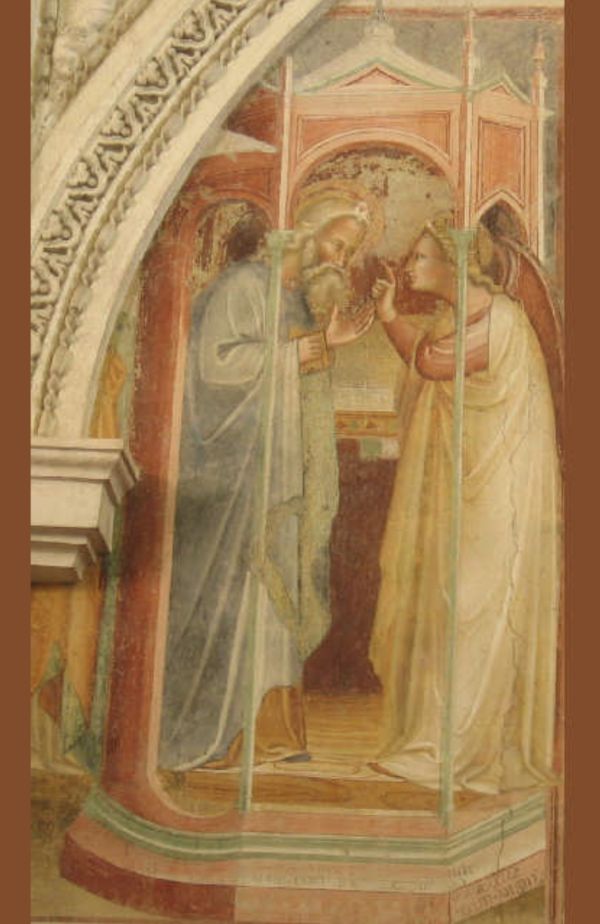Parent’s parent, for a different events’ reading
(Lk 1:5-25)
Lk places the Angel Gabriel’s visit to Zechariah next to the Annunciation to Mary (vv.26ss), in order to help his communities perceive the differences between religious order and life of Faith.
Even today, the comparison allows the leap between First and Second Covenants to be read in watermark.
In ancient religion it’s taken for granted that the place of encounter and dialogue with God is as planned: an inviolable and venerating enclosure, scented with incense - in the echo of invocations and songs with a fixed formula.
Here without exceptional cues, Zechariah’s belief [«zachàr-Ja»: the Lord of Israel ‘remembers’] doesn’t become personal, but repetitive, motionless.
By dint of commemorating and waiting, the priest of God and of the people no longer expects for anything decisive.
Engaged in the rite mechanism, he is not «blessed» (v.45) but unhappy; ‘mute’ because he no longer has anything to say to those waiting outside the temple.
No real blessing to pass on to people (vv.21-22).
So partly Elizabeth, who is hiding (v.24), while the Virgin - without asking permission - makes Exodus from her environment and rushes to serve her (vv.39ss).
And to trigger a more just and communal life, of the «well-disposed people» (v.17c) - here is a first shot: the mission of John, a figure of the expected return of the prophet Elijah (v.17a). Witness called to recover the hopes of the people and their torn social fabric.
Finally, this "reconstruction" will have an unforeseen outcome, far from prejudices: no longer the normal continuity of an obvious generational pact (Mal 3:23-24) but the definitive return of the heart of the fathers to the sons (v.17b)!
The meaning of the name ‘John’ [Yhwh is Merciful, He manifested his Benevolence, He made Grace] does not allude to some act of compassionate paternalism on the divine side - but to a precise cut from the lineage and from the ancient expectations or costumances, now an end in themselves.
In the Bible the term Mercy describes the Eternal’s different attention and fruitful action in favor of anyone in need - in desperate situations. Intervention necessary for a different genesis: epochal, which makes incredible life and reckless mission sprout, not according to predictions - not even by repeating intentions.
The Name that deviates from tradition is parable of God’s faithful testimony: from now on we must not only "remember" the still immobilized prophecies, without seeing their unpredictable implementation.
While assimilating the spiritual riches of the people, discontinuity marks the beginning of a completely new age.
It’s the transition to ‘personal’ fulfilment, and to a Kingdom that says Yes to everything it faces: that no longer decries the life of each one, of things, of the world.
The different reading of events and of inspirations allows us to become now fruitful - even fathers and mothers of our parents and ancestors.
[Weekday Liturgy, December 19]












